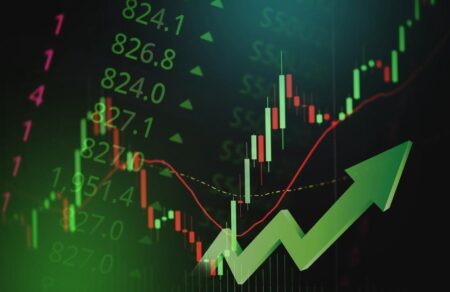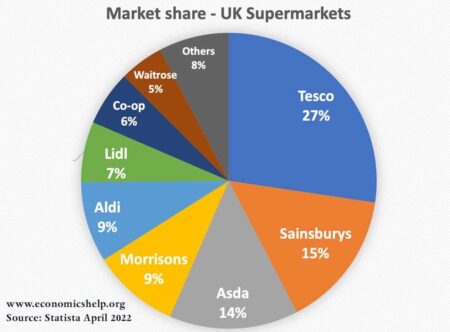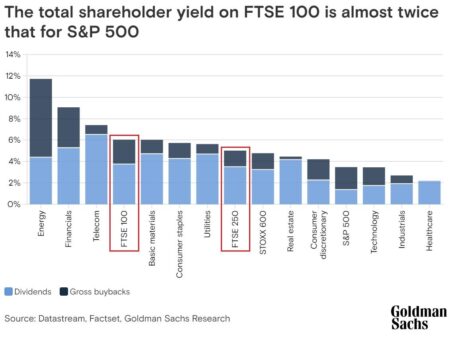Hyatt is strategically positioning itself to leverage India’s burgeoning population as a catalyst for growth. With increasing domestic travel and business opportunities, the hotel chain aims to expand its footprint, tapping into the vibrant hospitality market.
Browsing: economic trends
Stocks plunged in a dramatic mid-day reversal, erasing a 4% gain as investor sentiment soured. Concerns over rising interest rates and slowing economic growth weighed heavily on market momentum, prompting widespread sell-offs across multiple sectors.
“Views From The Ground: Why Brazil And Why BRAZ? 2025” on Seeking Alpha explores Brazil’s economic landscape and the potential of the BRAZ ETF. Analysts emphasize Brazil’s growth opportunities amid global market shifts, making it a focal point for investors.
Title: Navigating the Landscape of Grocery market Share in Great Britain (2017-2025) As the grocery sector in Great Britain continues…
Italy’s service sector growth waned in March, according to the latest PMI data released by Reuters. The index fell, reflecting sluggish demand and rising costs, raising concerns over the resilience of the economy amid ongoing challenges.
China’s Luxshare Precision Industry is reportedly considering a potential listing on the Hong Kong Stock Exchange this year, according to sources. This move could enhance its funding capabilities amid the growing demand for electronic components globally.
As demand for air travel between Canada and the US continues to dwindle, airlines are adjusting strategies to navigate the shifting landscape. OAG’s latest aviation market analysis reveals how carriers are refining routes and fares to remain competitive.
UK shares climbed, buoyed by rising commodity prices and a resurgence in the construction sector. Analysts noted that robust demand in these areas signaled economic resilience, fostering investor confidence amid global uncertainties.
Spain is experiencing an economic boom, driven by a resurgence in tourism, robust exports, and increased foreign investment. As the country capitalizes on its diverse sectors, experts predict sustained growth, boosting employment and national confidence.
UK stocks closed higher, signaling a positive end to the trading day. The Investing.com United Kingdom 100 index rose by 0.28%, reflecting investor optimism amid an evolving economic landscape. Key sectors showed robust performance, driving market gains.
Germany’s labor market shows signs of cooling, with recent data revealing a decrease in job vacancies and rising unemployment rates. Analysts warn that economic uncertainty may further impact employment stability. Observers will be watching closely for trends.
Carnival Corporation (CCL: NYSE) is expanding its fleet in Australia to meet robust local demand for cruising. The addition of new ships aims to bolster the company’s presence in the region, responding to the resurgence of travel and tourism post-pandemic.
Japan’s stock market is poised to open in the red, following mixed signals from global markets and concerns over economic data. Analysts anticipate a cautious trading session as investors weigh potential implications for domestic growth.
U.K. inflation fell to 2.8% in February, offering a temporary reprieve for consumers and policymakers. However, analysts warn that factors such as rising energy costs and supply chain disruptions could drive prices up again shortly.
In March 2025, numerous UK stocks are trading below their estimated valuations, signaling potential investment opportunities. Analysts attribute this trend to market volatility and economic uncertainty, highlighting sectors poised for recovery amid evolving conditions.
UK wage growth remains stable at 5.9%, according to the latest Financial Times report. This consistent growth could signal resilience in the labor market, despite ongoing economic challenges and inflationary pressures affecting consumers.
As global markets brace for shifts, tracking China’s economy and its commodity needs has become increasingly challenging. Analysts cite complexities in data accuracy and evolving consumption patterns that obscure insights vital for forecasting.
Spain’s economy is projected to grow by 2.7% in 2025, driven primarily by strong private consumption, according to the central bank. This optimistic forecast highlights resilience in consumer spending as the country navigates post-pandemic recovery.
As the U.S. contemplates the continuation of Trump-era tariffs, analysts warn of potential repercussions on its economy, raising concerns over a possible recession. India, heavily reliant on exports, may face ripple effects, prompting urgent evaluations of its trade strategies.
Brazil’s egg exports have surged, driven by increasing demand from the U.S. market. As prices rise and domestic production stabilizes, Brazil is poised to become a dominant player in the global egg trade, meeting the appetites of consumers abroad.


















